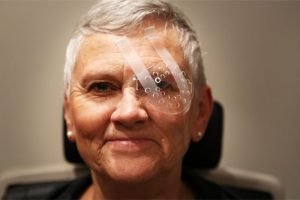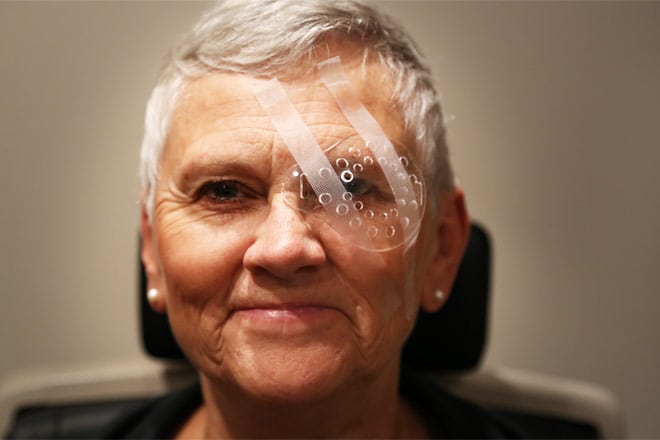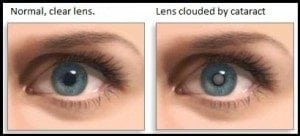What can I expect during and after my cataract surgery?
Your doctor will prescribe drops for you to begin using prior to your cataract surgery. You will receive specific instructions as to which medications you may take the morning of your cataract surgery and will need to bring all of your medications with you the morning of your cataract surgery including all eye drops.
You will be asked to refrain from eating or drinking after midnight prior to your cataract surgery. On the morning of your cataract surgery, you should wash your face with just soap and water. DO NOT wear makeup, lotions, creams or perfume/aftershave. You should wear loose fitting, comfortable clothing, preferably a two-piece outfit that buttons up the front.
You will need to bring a responsible adult to drive you home after surgery. Although the actual surgery will only take about 30 minutes, they should expect to wait approximately three hours to allow for surgery preparation and for you to rest in a recovery area immediately after surgery.
Each eye surgeon’s procedure varies slightly, but generally you can expect your surgeon to take the following steps:
- Apply a topical anesthetic to numb your eye. Often, IV anesthesia will also be given to help you relax during your procedure.
- Make a small incision in the cornea with either a handheld blade or with a laser. A small probe then breaks up and removes your cataract, and your new lens is inserted. In most cases, no stitches are required because the incision is so small.
- Protect your eye with a bandage or patch, which can typically be removed within a few hours.

A protective patch will be placed over your eye following cataract surgery. (Image courtesy of Vance Thompson Vision)
After Cataract Surgery
You should have very little pain after surgery. Your eye will feel a little scratchy and itchy but you should avoid rubbing or putting pressure on your eyes. The operative eye may also be a little red for a few weeks. If you notice a little extra mucus in your eye or crustiness along your eyelashes, you may gently clean your eye with a warm washcloth.
Don’t be alarmed if your vision seems cloudy, blurry or distorted when you first remove the eye shield. It can take some time for your visual system to adjust to the removal of the cataract and adapt to the intraocular lens used to replace your eye’s natural lens. Many patients report clearer vision soon after cataract surgery, but each person heals differently, and you may need as long as a few weeks before you see images in their sharpest focus.
Your surgeon will instruct you to take antibiotic eye drops to prevent infection and anti-inflammatory eye drops to help reduce any internal inflammation in the operative eye. You should use all the drops, exactly as prescribed, until they are gone, unless otherwise instructed by your surgeon. You will see your doctor for a post-operative appointment the day after surgery. If you notice a sudden change in vision, feel severe eye pain or have any other concerns in the days after this appointment, you should contact your surgeon. Columbia Eye Clinic has a physician on-call 24-hours a day.
You should observe a few precautions during the first week or so after surgery to avoid developing an infection or sustaining an injury to your eye while it heals.
- Don’t drive for 24 hours after surgery.
- The plastic shield should be worn over your eye at bedtime or during naps after surgery.
- Be careful walking around after surgery, and don’t bump into doors or other objects.
- To reduce risk of infection, avoid swimming or using a hot tub during the first week.
- Don’t expose your eye to irritants such as grime, dust and wind during the first few weeks after surgery.
After your surgery, you may:
- Bend, stoop over, walk up and down stairs and lift light objects (less than 20-25 pounds).
- Watch TV, read, sew or do close work as usual.
- Ride in the car, go to church, dine out.
- Take a bath or shower (as long as you don’t get any water into the operative eye).
- Go to the beauty salon or wash your hair after the first day (remembering not to get any water in the eye).
- Wear eye makeup after 10 days.
In most cases, your eye should be completely healed and your recovery complete in about a month.





 ANNOUNCING UPDATES TO OUR COVID-19 SAFETY PROTOCOLS
ANNOUNCING UPDATES TO OUR COVID-19 SAFETY PROTOCOLS